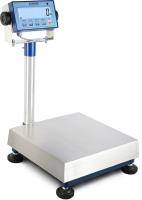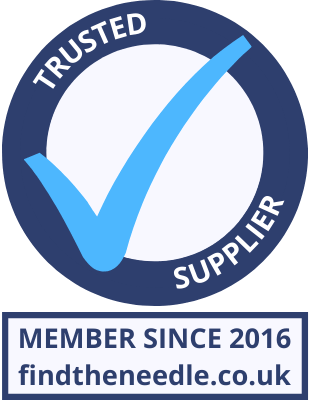 Add My Company
Add My Company
Sign In
SCALE BUYING GUIDE: 8 ESSENTIAL TIPS
25-08-2016

Weighing Scales have come a long way in the last decade or so. Gone are the days where a weighing scale simply told you the weight of something, now they are commonly linked in to shipping systems, packaging solutions and even the medical records database. This guide will break down the questions you need to ask to give you the right scale first time.
1. What's your application?
The first and foremost question you need to ask, what will I be doing with this scale? Are you weighing people, boxes, pallets, vehicles or something else? The answer to this question will put you in the right category. For instance, if you are weighing people then you will want Medical Scales, if it's boxes or pallets then you will be looking for Industrial Scales and so on.
Choose the right category and you will then have a clearer picture of what's available to you.
2. How do you want to use the scale?
Once you have chosen the right category (Step 1), you will then want to choose how you wish to use the scale. As an example, you want to weigh pallets in a busy despatch area. Having selected Industrial Scales you will then want to select a sub-category of platform scales or pallet weighing. In a medical application where you wanted to weigh babies in a maternity ward, you would choose Medical Scales followed by Baby Scales.
3. Pick the right Capacity scale
Make sure when picking your scale that you choose the right capacity for your application. Always over estimate, never under estimate.
You're going to be weighing something around 200Kg? Pick a scale with 300Kg capacity. This will give you that extra comfort to know you are not stressing your scale unnecessarily. Although scales are often protected from overloading, and are load tested to excess of their rated capacity, it will help you in the long run to make sure you are well within the scales capacities. Along with this you are future proofing your application. OK, so you may be weighing up to 200Kg now, but maybe that will be 250Kg next year. Better to be safe than sorry.
Some caution though, don't overdo your estimation. Remember, the higher the capacity you go the larger the weighing increments. See the next step...
4. What Increments do you require?
Right, so you now know what capacity you need, but the increments are also important. Generally, the higher the capacity the more coarse the increments are.
The increments are the steps that your scale takes, from zero up to capacity. This is often the second number quoted after capacity. For instance, 30Kg x 10g would be a 30Kg capacity scale that goes up in 10g steps, or 0.01Kg to visualize it better. 1500Kg x 0.5Kg would mean the scale goes up in 0.5Kg steps all the way up to 1500Kg.
To confuse matters, some scales have dual (or even triple) capacity and increments. This will often read as two capacities and two increments. As an example, 1500/3000Kg x 0.5/1Kg would give you a dual capacity where the scale goes up to 1500Kg in 0.5Kg steps, and once it's reached 1500Kg it then goes up to the next capacity of 3000 Kg in 1Kg steps.
This works well for most people as it practically gives you two scales for the price of one.
5. Choose the right Platform Size
An important choice to make is the platform or base size. You wouldn't want to be weighing a pallet on a 400mm square platform after all.
This is often the easiest choice to make, but also easy to get wrong. It normally isn't a problem to weigh an oversized object on a smaller platform, but the weight needs to be completely applied to the scale, it can't be supported by anything else or you won't get an accurate reading.
6. Are you Selling or Buying by Weight?
Trade ApprovedIf you are either selling or buying by weight, or in a medical profession where you are prescribing medicine, you will need to have Class III Trade Approved Scales. Also known as CE-M approved, Trading Standards Approved or Stamped Scales.
Read our previous article entitled What are Class III Approved Scales and do I need them? to find out if this applies to you.
7. What do you want to do with the weight information?
As previously mentioned, scales have moved on in the last decade or so to interfacing with other systems to provide a much more uniform collection of data. Weight information is important to most applications and in most cases, critical. With the majority of our scales, we are able to offer different connectivity options. Want your axle pads to communicate with your tablet PC via Bluetooth? Not a problem. Want your pallet scales to connect to your Wi-Fi network to transmit to a PC on the other side of the building, or even a different country? Again, not a problem.
This is our speciality. Please do get in touch if you have requirements for interfacing your scales with different systems.
8. If you are unsure, Ask
As with most scale companies, Total Weighing Solutions are happy to help you find the right scale for you. If the multitude of choices confuses you then we would always welcome your call or email to ask for advice. Our representatives are always willing and able to help you, simply call us on 01327 368020 or email us at sales@totalweighing.co.uk.
For more information on SCALE BUYING GUIDE: 8 ESSENTIAL TIPS talk to Total Weighing Solutions Ltd
Enquire Now
More News
List your company on FindTheNeedle.

